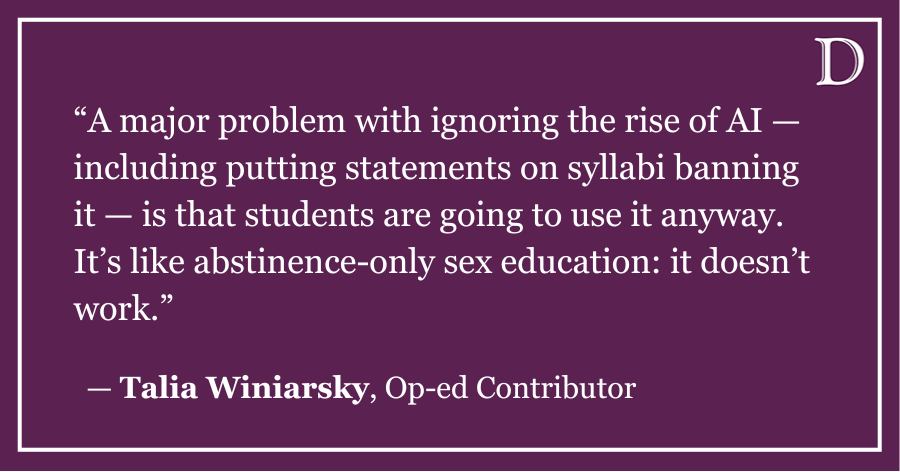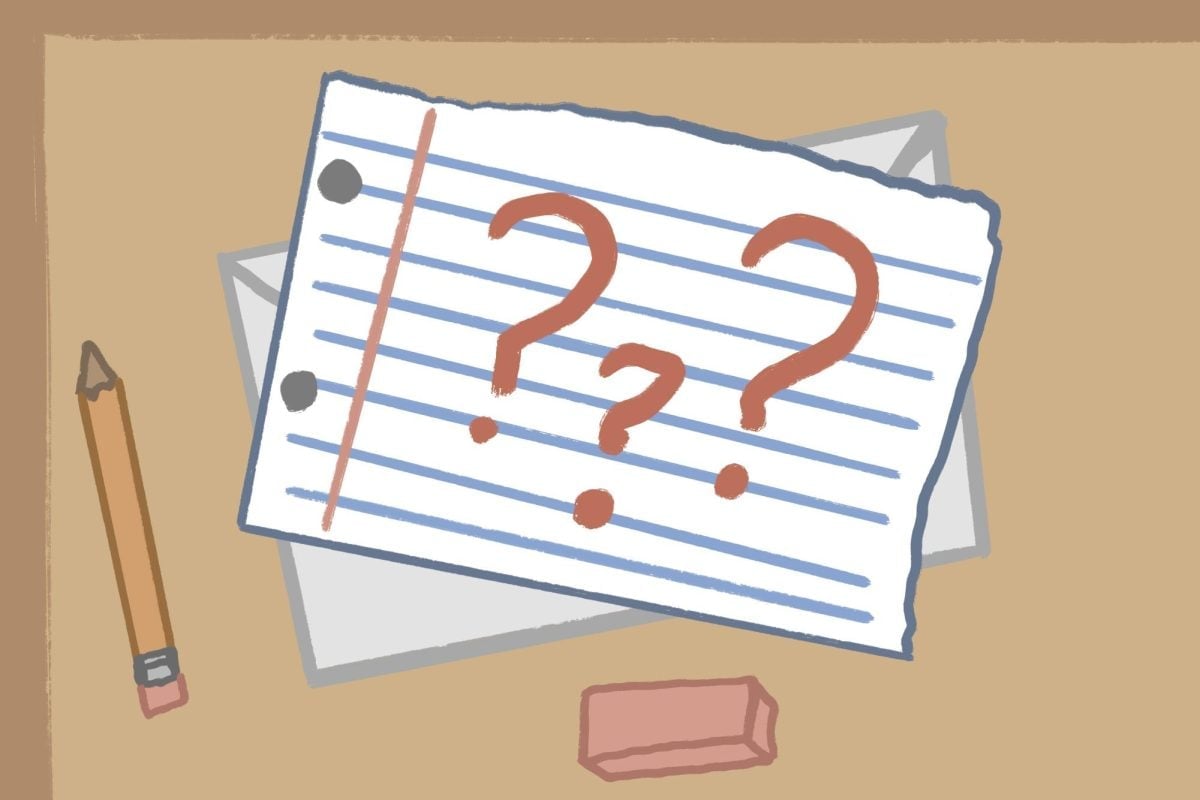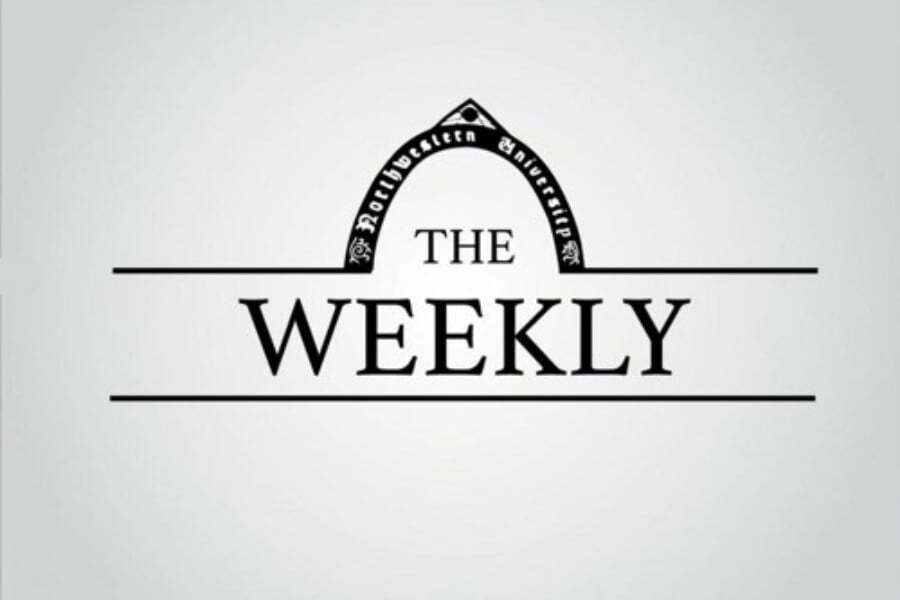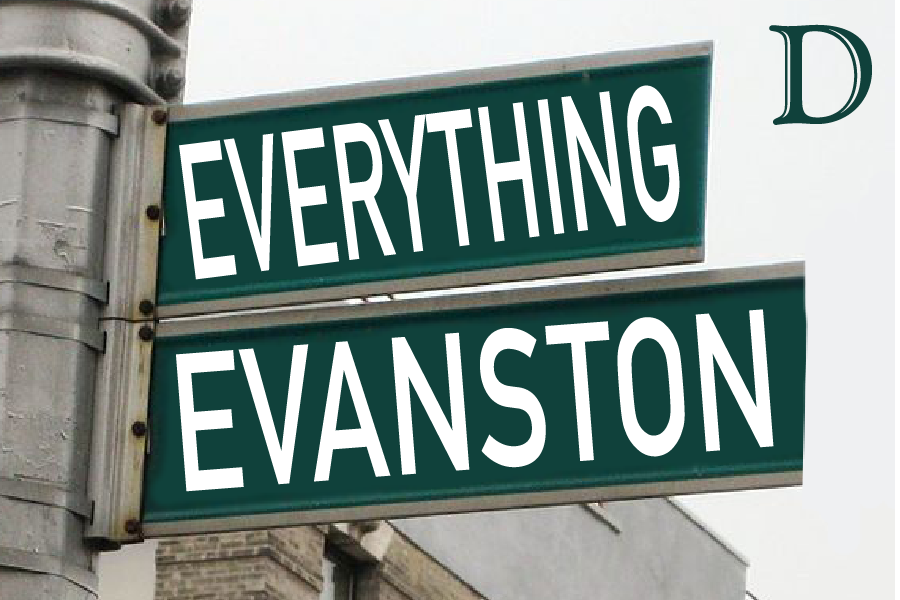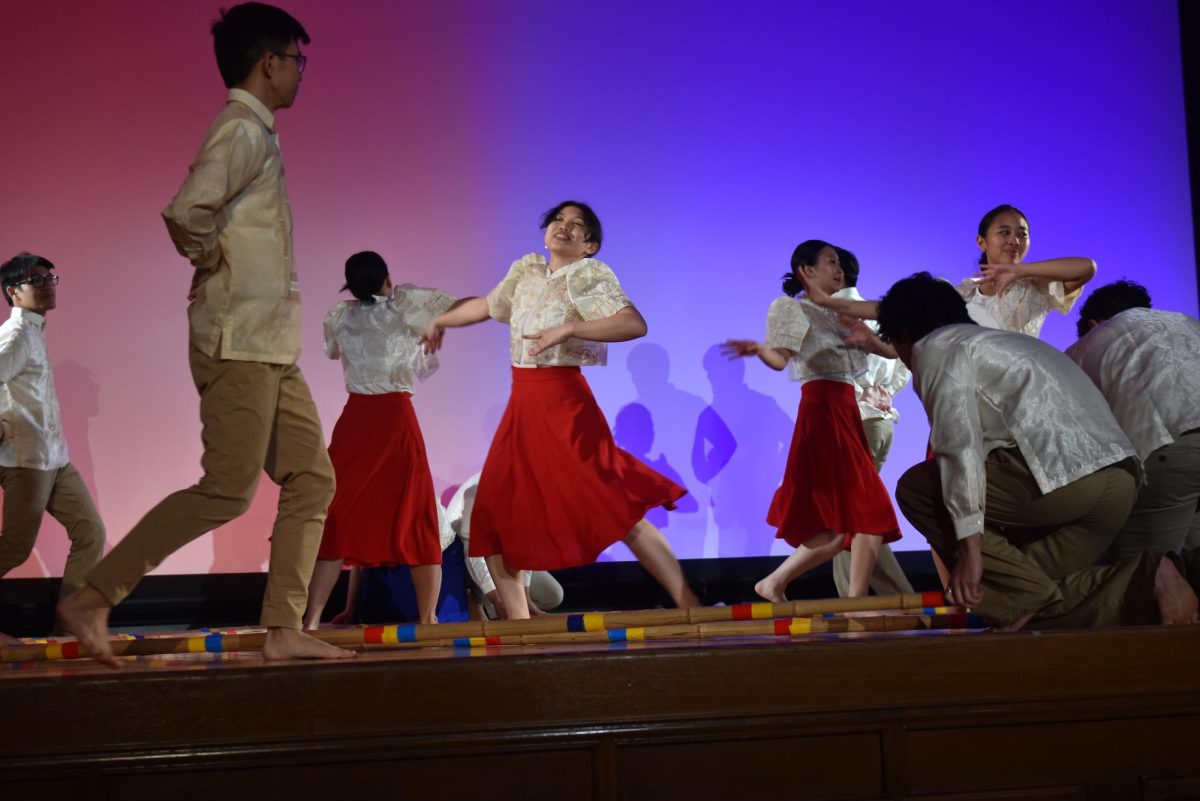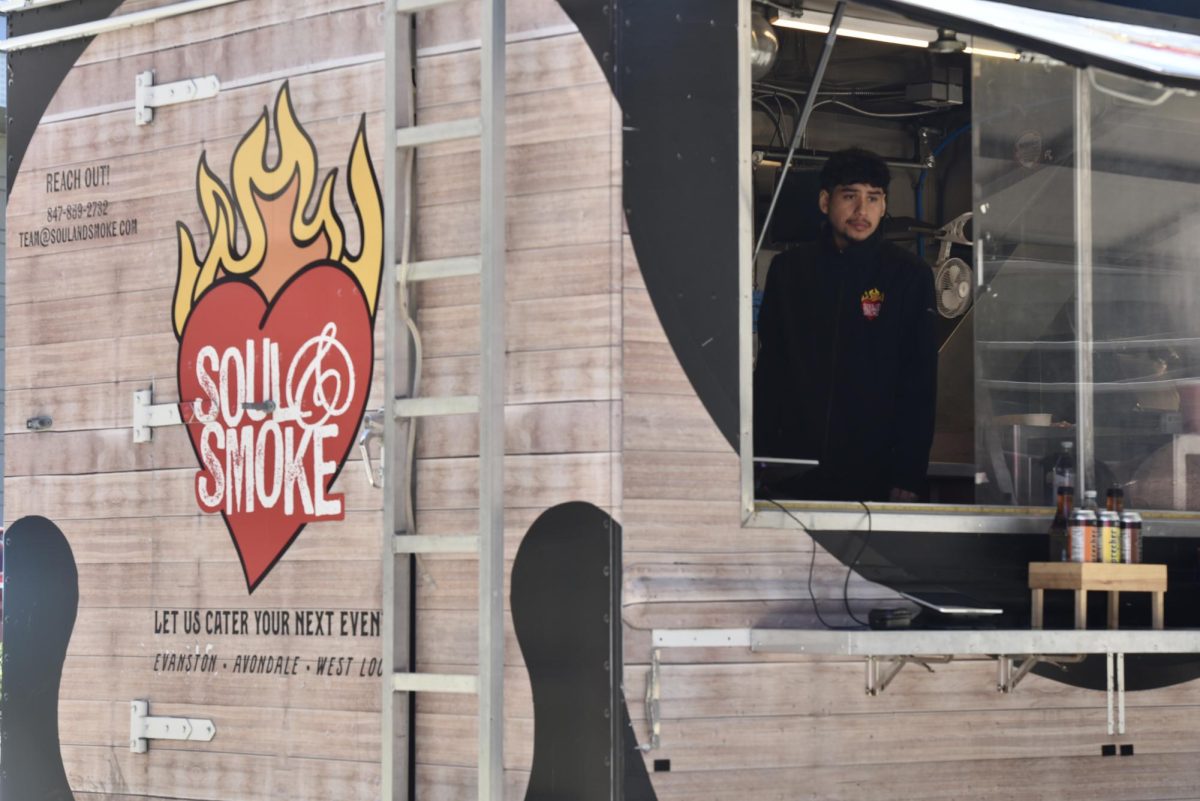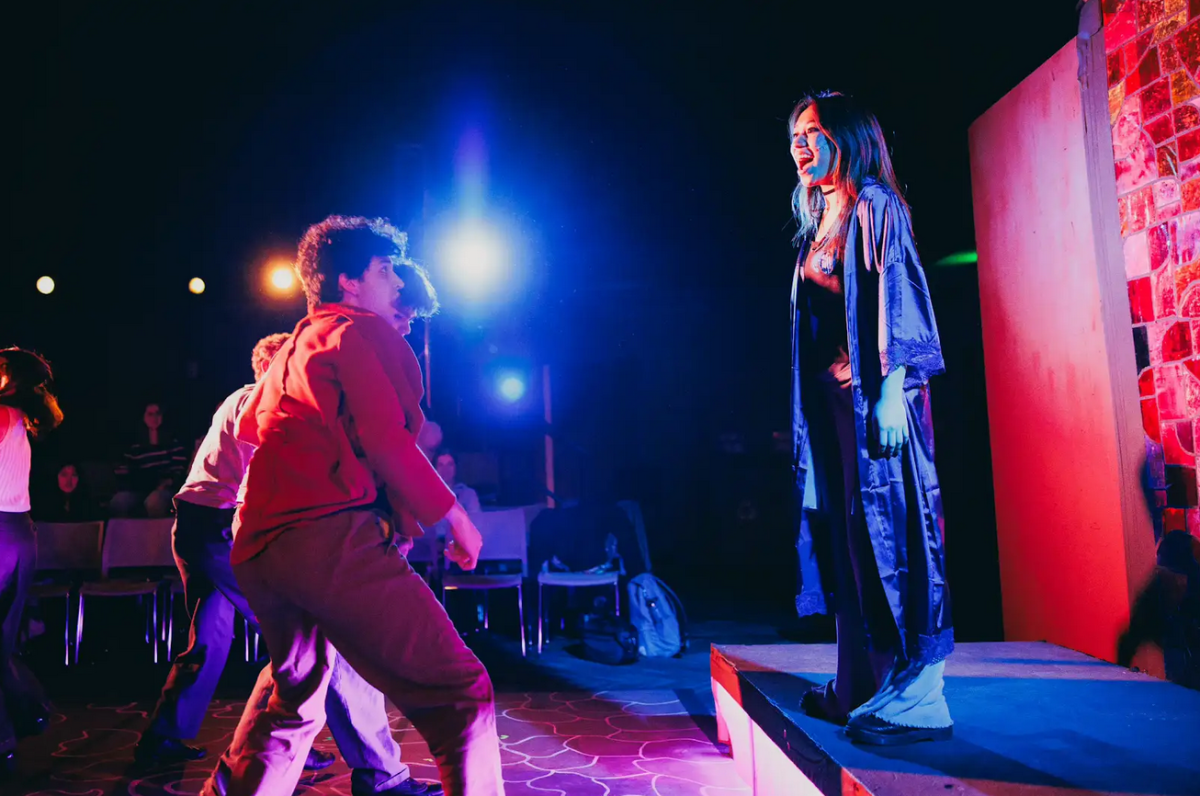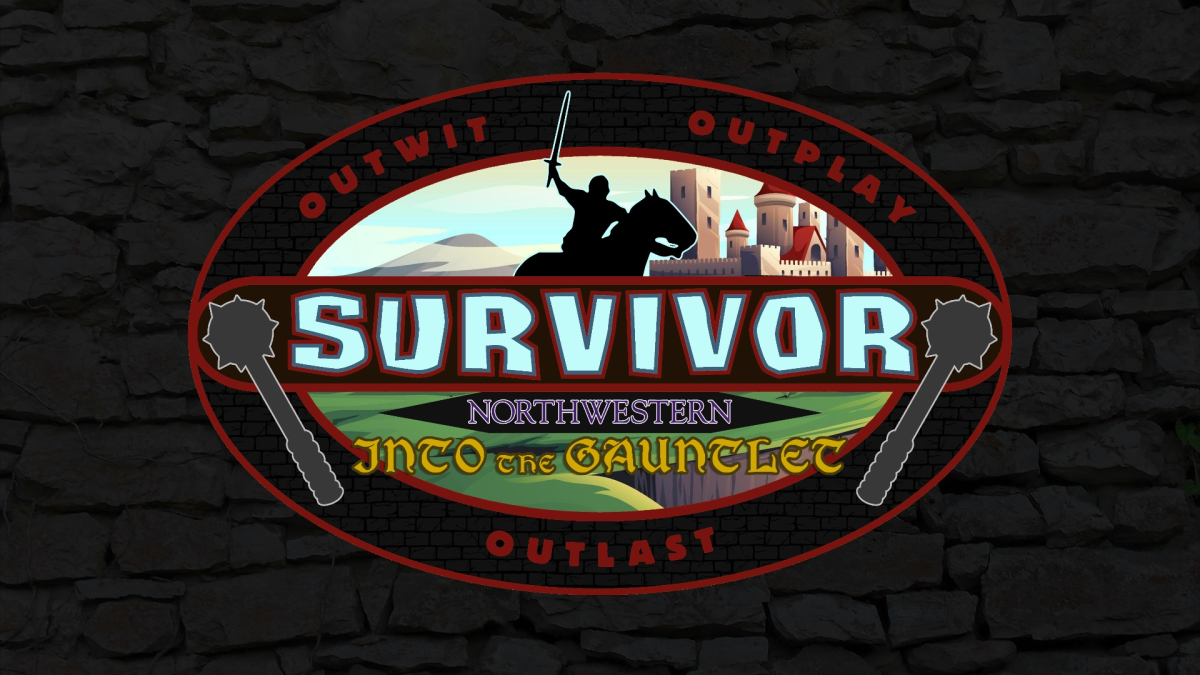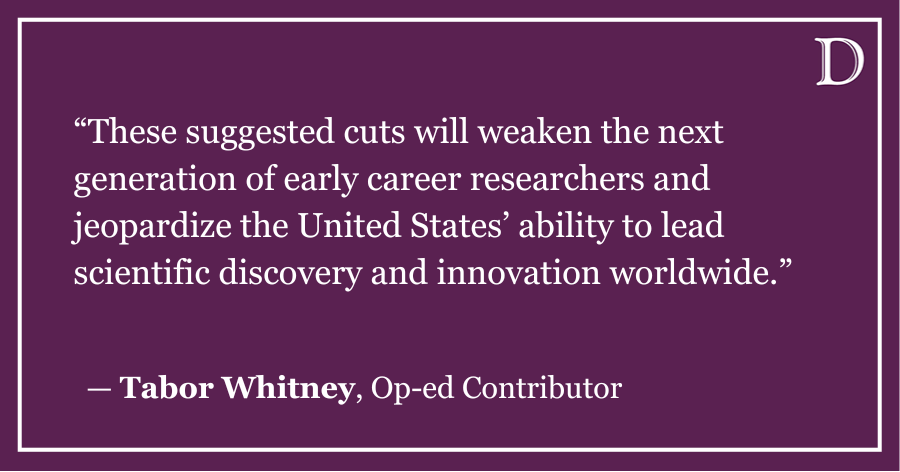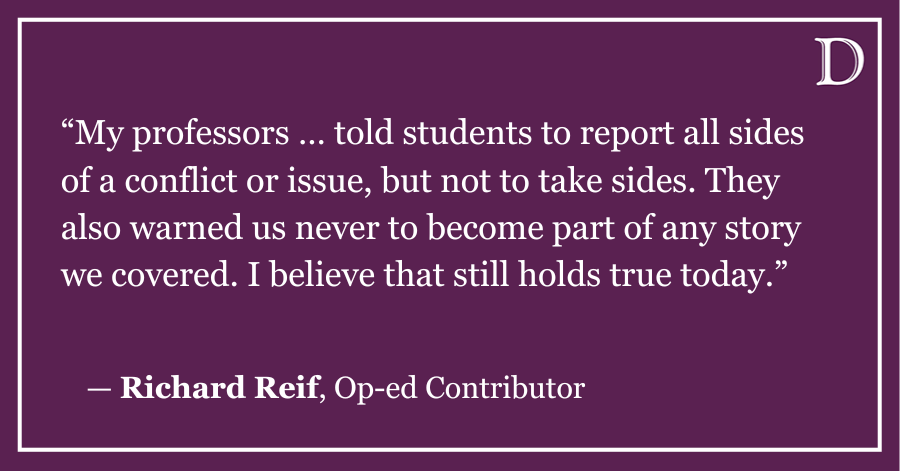As our government descends into oligarchy and the constitutional rights of our citizens are sold down the river, I often question the career path I chose. How can I enter a profession where having strong opinions is detrimental to my work?
One of the defining elements of journalism is a reporter’s objectivity. In the Medill School of Journalism’s first-year sequence, journalistic objectivity is drilled into our skulls from day one. We read about reporters who do not vote because they think it comprises their ethos as journalists and ponder the negative impact of our opinions on the reporting process. In Medill, objectivity is the name of the game.
I say this not to discount objectivity; in journalism, it is critical. Our perspectives on issues of the day should not bleed into our coverage of said issues. The most talented reporters have a knack for dialing back their opinions to provide a clear-eyed chronicling of a story.
However, in the Trump 2.0 era, journalists have a choice to make. Will they allow their commitment to objectively sacrifice a willingness to stand up for what is right? Can journalists be activists?
In 2020, the Media Diversity Institute published an article on the ethics behind wearing political attire on assignment. The article mentions a supervisor denying their reporter from wearing a #BLM t-shirt on assignment, calling it “unethical” for journalists to take a stance on the issue publicly.
In principle, I understand this ethical parameter. Journalists should practice unbiased coverage and maintain neutrality wherever possible. But when it comes to protecting Black lives and communities torn apart by police violence, I see no harm in standing in solidarity.
In Medill intro classes like 202 and the 201-sequence, we are also taught to put our humanity above our journalism. I interpret that to mean standing up for the issues we care about is more important than pretending to not have an opinion.
There are ample avenues for activism in 2025. In resisting Trump, it behooves us to stand up for immigrants facing deportation just by virtue of their citizenship status or use of free speech. We must fight for the LGBTQ+ community, particularly trans citizens, who are seeing their rights to gender-affirming care stripped away. We must fight for college students exercising their right to protest. We must protect our veterans, who are seeing budget cuts from Veterans Affairs.
We must fight on behalf of everyone who falls below the threshold of the top 1%, the people who are seeing their abortion protections stripped in many red states, the Americans who cannot afford healthcare due to corporate greed and inhumanity.
Everyone who falls under a marginalized identity is at risk during Trump’s presidency. Our rights are at the whim of an administration that is hateful, reckless and unfit for leadership.
As a Black and LGBTQ+-identifying college student, my identity and ethical principles as a journalist sometimes clash. How can I cover issues impacting the Black and LGBTQ+ community without my own biases and history of advocacy coloring my reporting?
Last quarter, I worked on a feature for this publication on how conservative attacks on DEI nationwide were trickling down and impacting NU. Each day last quarter, I monitored the latest removal of NU DEI websites, paying close attention to the vagaries of NU’s response to the federal government’s attacks on higher education.
As a former DEI ambassador for my high school, affinity group co-leader and current DEI editor for another NU publication, my biases are clear. I believe DEI programming uplifts marginalized voices and expands belonging for individuals underrepresented in the spaces they frequent.
To adopt diplomacy in covering DEI was difficult. I had to dial back my frustration with Trump and clear my outlook on what I believed to be a dichotomy of right and wrong.
Having also covered DEI extensively in high school, I learned that integrating justice and inclusivity into reporting does not have to obstruct objectivity.
In reporting on DEI for The Daily, I spoke to fourteen people potentially impacted by attacks on DEI. I spoke to incoming and current QuestBridge students who cited diversity as one of their core priorities on a college campus. I interviewed leaders of affinity organizations who harbored grave concerns that their groups would lose funding. I also spoke to Associated Student Government representatives, past and present, to get a scope on how funding cuts would impact DEI initiatives on campus in this unprecedented time.
I recently asked a Medill grad about whether journalists can use activism as a medium to advance their work. They responded that uplifting unsung voices through journalism is a form of activism in the plainest sense.
Journalists can be advocates for communities harmed by the Trump administration by listening to their concerns and reporting on them delicately. Honest and informed reporting, reporting that goes the extra mile to ensure that sources are represented as authentically as possible, is fundamental to good journalism.
Beyond reporting, journalists are humans too. We have relatives and loved ones directly impacted by the Trump regime. I have close trans friends who are terrified to see their rights upended. I have queer people in my life who are contemplating leaving the country, some of whom have fleshed out plans to do so, because of the anti-LGBTQ+ legislation pervading our polity.
I also have friends with immigrant parents from communities whose patriotism is being interrogated. I know people from what Trump would call “(s– t)hole” countries who are directly threatened by the administration’s shifting directives for international students.
As a Black student at one of the country’s top universities, I constantly hear Republicans criticize the diversity initiatives that allow me to thrive here, and am well aware of people who believe I do not deserve what I have accomplished.
Journalists do not have to loudly signal their political affiliations or biases to take a stand. Actions like showing up to protests, participating in local organizations or canvassing for climate initiatives do not have to eliminate a journalist’s credibility, particularly when these decisions are personal and separate from journalists’ work lives. We can take a stand for the causes we believe in without sacrificing our ethos in the profession.
Journalists must ask themselves which side of history they are on. Will they let their obligation to neutrality cloud their judgement of justice? As my rights and the rights of my loved ones are in jeopardy, I am choosing my humanity over my profession.
Gabe Hawkins is a Medill freshman. He can be contacted at [email protected]. If you would like to respond publicly to this op-ed, send a Letter to the Editor to [email protected]. The views expressed in this piece do not necessarily reflect the views of all staff members of The Daily Northwestern.


